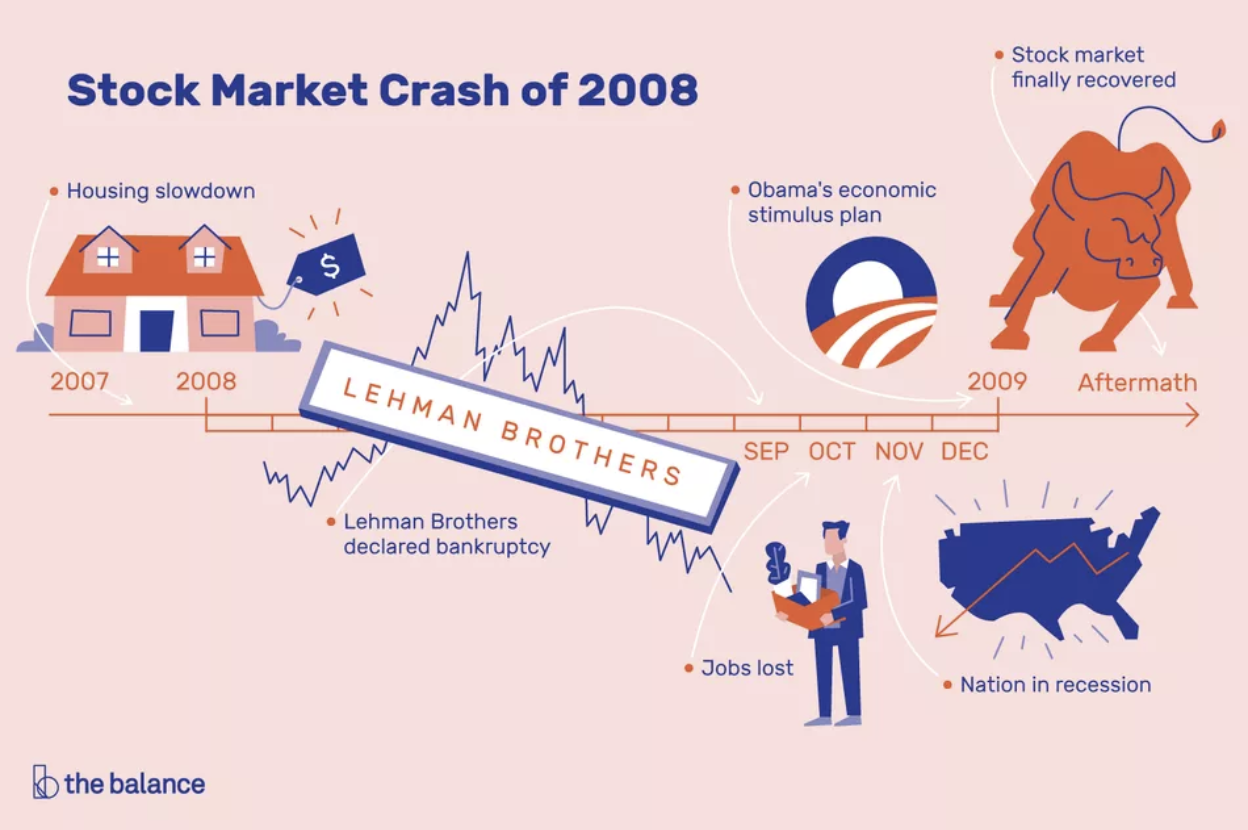
To Be Greedy, Or Not To Be
Hey Scoopers,
Covid-19
+ An oil price war
+ An overvalued 11-year bull market
= Market closing near a 20% recessionary decline.
Everyone’s fearful. Is it time to be greedy?
– more on that in the “Overall Market” section.
Beyond the overall market, can you guess which stock jumped nearly 6%, and who dared to report a disappointing earnings report on Monday? — more on that in the “What’s Up?” and “What’s Down?” sections.
Oh, by the way, have you sent your thank you notes to the circuit breakers? — more on that in the “Water Cooler” section.
But, first, here is a recap of what happened in the market yesterday:
Market Recap

- U.S. markets: All three indices finished Monday in the red and stayed there for almost the entire trading day. Scroll down to the “Overall Market” section to read more.
- Cryptocurrency: Bitcoin’s price followed the overall market decline and fell under the $8,000 mark.
![]()
A free retirement strategy you MUST see
Want to learn how to retire rich with just 3 stocks?
Get the names and tickers of the 3 stocks you need to get started.
![]()
To Be Greedy, Or Not To Be. That’s The Question.

We all have heard that savvy investors are greedy when the market is fearful. When the market falls, and the pessimism is at the peak, it is the time to start investing. Those opportunities are rare in the life of an individual investor, so one must be ready to act when the opportunity knocks.
The Covid-19 + an oil price war + an 11-year bull market has led to a nearly 20% decline in the stock market indices since the beginning of 2020. It hurts to see the decline, but true regret would be when an investor fails to take advantage of the market decline.
That’s why the most important question one should answer is when to start to be greedy? When to start buying?
What does history say?
The last time the stock market crashed (during the 2008 financial crisis), it took 18 months for the market to recover. This was much faster than the recovery during the Great Depression of the 1930s when it took four years to do just that. However, the recovery took quite a few months.

(Source: The Balance)
Judging from history, the recovery won’t happen in one day, neither will it happen in one week or even in one month. The stock market always drops faster than it recovers. Being greedy is good, but rushing it won’t help. Don’t rush it if you have been saving cash on the side. Don’t rush it if you’ve been watching the market for a while. There will be a time for being greedy, but it may not be now just yet.
Of course, no one can time the market. All we can do is use the history as a lesson for the future and take calculated steps to benefit from the market decline. This time the recovery may or may not take long. No one knows…
![]()
Keep Fixing That Car.
So, what happened?
Shares of AutoZone (Ticker: AZO) were among the very few winners of Monday. Shares were up more than 5% on the day that almost no stock was safe from the widespread sell-off. Everyone has to fix their cars, with coronavirus or not. If a zombie apocalypse happens, we all need to drive our cars. Joking aside, a cash-generating, recession-friendly, well-managed company such as AutoZone surely deserves the honor of going up in value on a day like Monday.
Earn $23,500 in 45 Minutes?
It’s not stocks… Not bonds… And not real estate…
Yet, for a few lucky readers, this type of simple source of income could send you real, hold-in-your-hand paychecks for the rest of your life.
Click here for the full story.
![]()
The Worst Day To Report Your Earnings.
So, what happened?
Shares of Stitch Fix (Ticker: SFIX) were down more than 40% on Monday. Some of it was due to the broad market decline. But, most of the decline was due to the company’s earnings report that happened on Monday. It was literally the worst day to report your annual earnings and disappoint investors with cutting down full-year sales and profit forecasts. Stitch Fix called lower order values, rising costs and the potential impact of coronavirus as the reasons for the lower forecast, and well, investors didn’t like that a bit.
![]()
Thank You, Circuit Breakers …

So what happened?
The talk of circuit breakers was widespread in the media. After all, these little circuits saved the stock market from a downward spiral of algorithmic trading on Monday. Things may seem very bad with more than a 7% decline across all three indices. But, things could have been way worse.
Having circuit breakers as a feature of modern stock market exchanges is the result of the market crash of October 19th, 1987, also known as Black Monday. It may have seemed to be a bad thing happening and investors were panicking on Monday. However, we have Black Monday and the resulting circuit breakers to thank for what they did for us on Monday and saved us from falling into a rabbit hole. Phew!


















